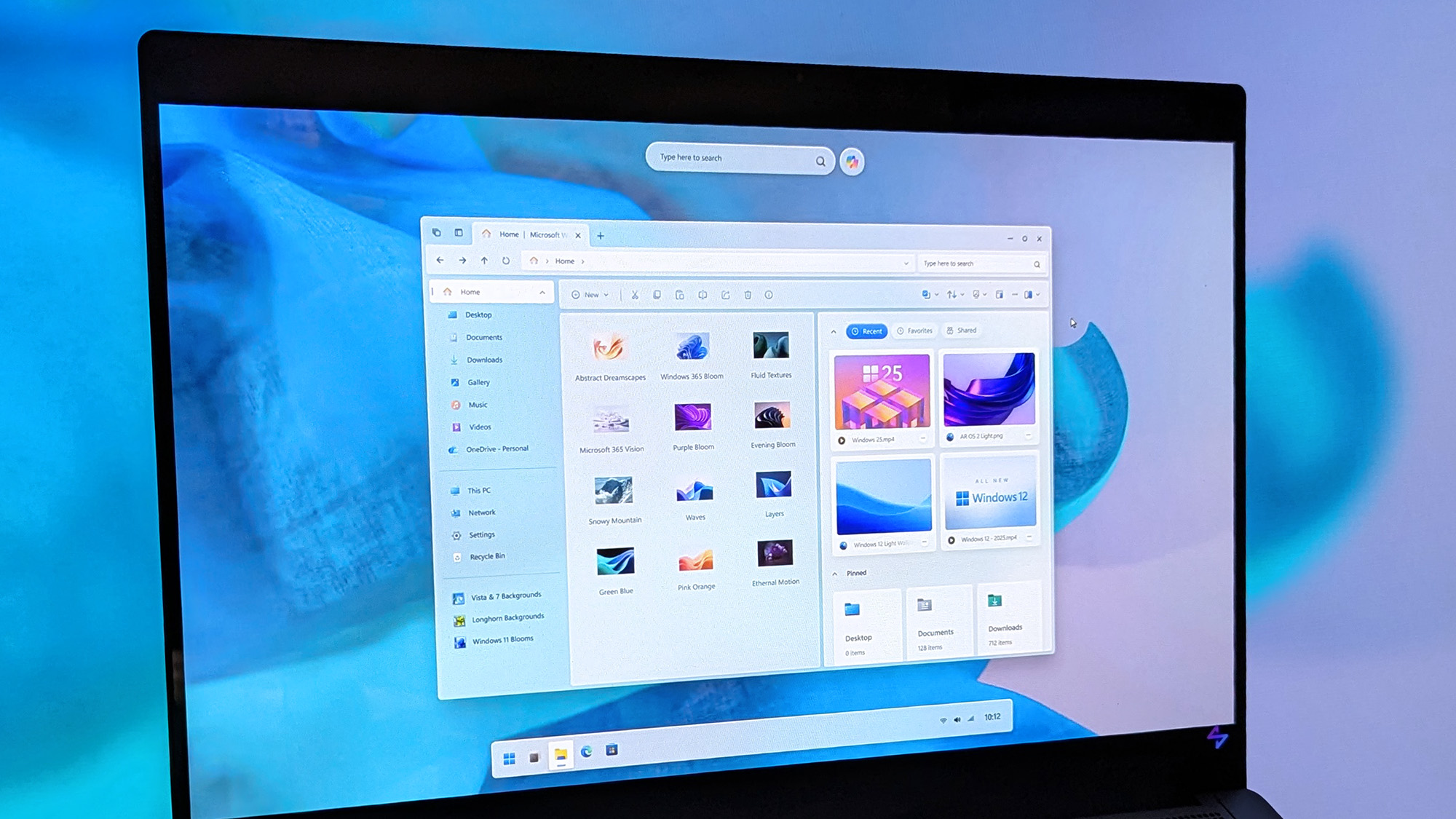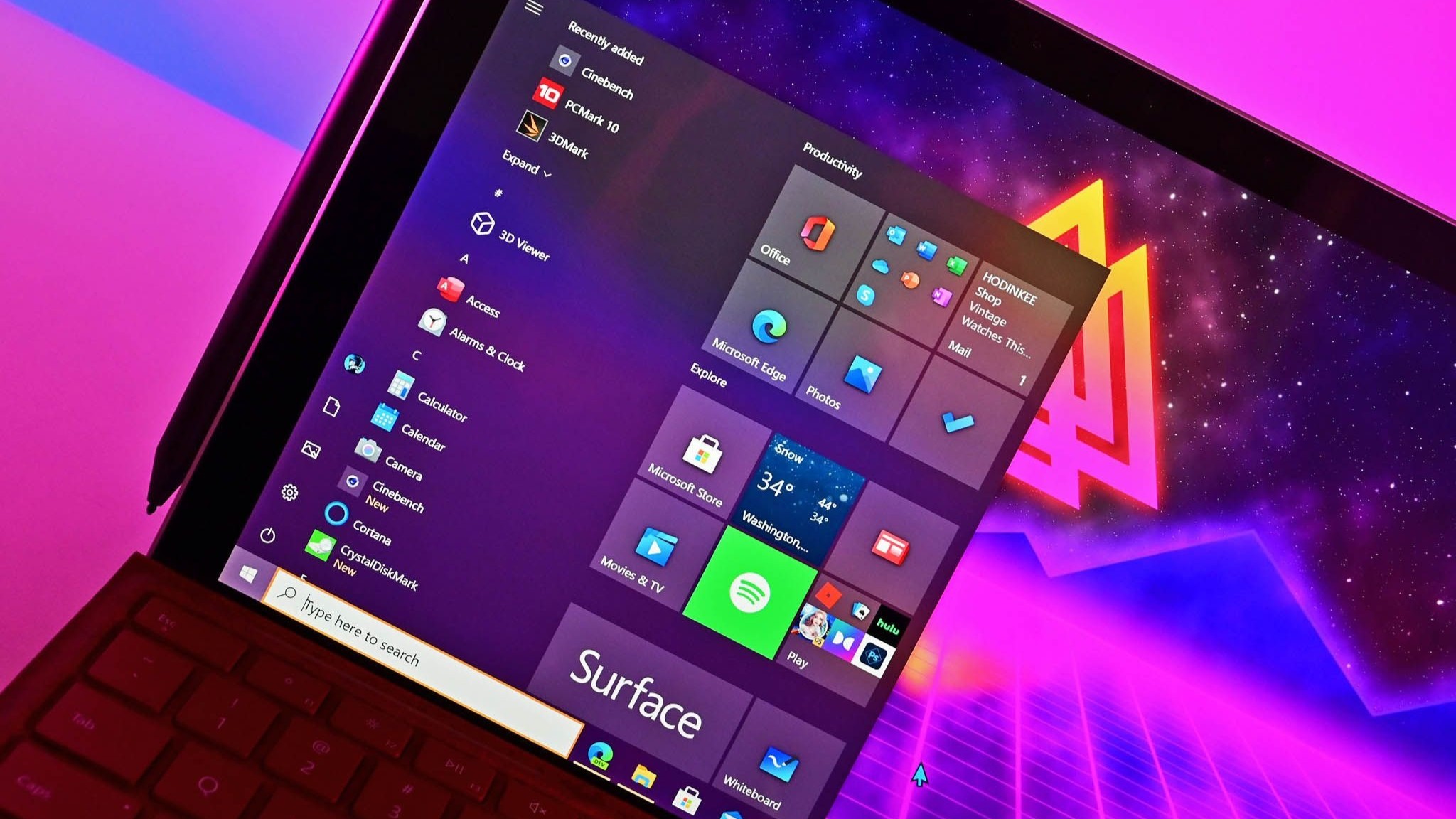Microsoft shouldn't ignore this 'Brilliant' Windows 12 concept — featuring a consistent dark mode and improved AI search that leaves Windows 11 in the dust
A designer shared a sleek Windows 12 concept showcasing added customization and a unique 'Collectzone' wallpaper feature.

All the latest news, reviews, and guides for Windows and Xbox diehards.
You are now subscribed
Your newsletter sign-up was successful
It’s clear that some users remain hesitant to upgrade to Windows 11, even with Windows 10’s end-of-life slated for October 14, 2025. This reluctance may be partly due to design flaws in Windows 11 and its stringent minimum system requirements.
However, over the past few months, there has been an influx of alternatives that lessen some of these burdens for users. For instance, Tiny11, a tool that can create a lightweight version of Windows 11 for old and unsupported PCs, recently saw a major update, which supports Windows 11 version 25H2 and scraps Microsoft apps like the new Outlook and Copilot.
As you may know, Microsoft's Windows 11 version 25H2 is expected to begin rolling out to users in waves from September through October; however, it's worth noting that the update won't ship with any new features. To that end, Microsoft has remained silent about the development of a potential Windows 11 successor, though some rumours about Windows 12 have seeped through the cracks over the past few years.
This hasn't kept avid Windows users and enthusiasts like concept designer Abdi (AR 4789 on YouTube) from dreaming. You might remember him from the tasteful Windows 12.2 "next evolution" concept design I covered last month, which frankly put Windows 11 to shame. The concept neatly placed Microsoft's aggressive Copilot AI campaign on the back burner, allowing nostalgic themes from Windows 7 to thrive.
As it happens, the designer has released another concept video dubbed the "Brilliant Windows 12". Rather than just overhauling Windows 11 with sleek design elements, the concept introduces fresh ideas like "Collectzone", which essentially allows users to easily compile multiple wallpapers into collections for easy accessibility (via Beta News).
The designer also merges the Control panel with the operating system's settings, which significantly improves the user experience as the user can personalize the experience to meet their preferences and more.
The Brilliant Windows 12 concept design also features Quick interactive settings, where you can easily enable dark mode (Windows 11, I'm looking at you again). The quick interactive settings also include a screenshot button, which presumably would either allow you to quickly access previously captured snapshots or take new shots.
All the latest news, reviews, and guides for Windows and Xbox diehards.
Copilot AI also made a starring appearance in the concept design video, where the designer showcased its sophisticated search capabilities. And finally, the concept also gives the user more control over customization options, allowing the user to place widgets anywhere they'd like within the operating system.
To that end, Microsoft's plans for a future OS that lives up to beyond Windows 11's reputation are unclear, but it would be interesting to see if the company could implement some of these ideas. Microsoft CVP and Windows lead Pavan Davuluri recently revealed what the future of Windows could look like.
The Windows 11 successor will present "a truly ambient and multi-modal experience made possible by AI that will redefine our usage of computers."
What’s next for Microsoft’s ecosystem after Windows 10 reaches end-of-life?
There's so much going on right now in Microsoft's Windows ecosystem, especially with Windows 10's imminent death just a little over a month away. The move has received backlash from users despite the tech giant introducing its Extended Security Updates (ESU) program for continued security support beyond the October 14, 2025, cutoff date.
Microsoft clearly prefers users to upgrade Windows 11 instead of enrolling in the program by syncing your PC settings to the cloud via a Microsoft account, redeeming 1,000 Microsoft Reward points, or paying $30 for extended security updates (ESU), which now supports up to 10 devices.
Previously, Microsoft has made bold statements like "Windows 11 PCs are up to 2.3x faster than Windows 10 PCs" to push Windows 11 upgrades, prompting multiple users to claim that Windows 10's end of support feels like "programmed obsolescence," designed to bolster Copilot+ PC sales.
A public interest research group (PIRG) petitioned Microsoft's decision to cut support for Windows 10, indicating that it would lead to "the single biggest jump in dumped computers ever". While Microsoft seemingly introduced its ESU program to address some of these concerns, the group claims the program isn't a viable solution for the 400 million PCs that can't upgrade to Windows 11. "It's obvious users are frustrated and feel yanked around," the group added.
Perhaps more concerning, HP and Dell recently indicated that half of today's PCs still run on Windows 10. And while this could expose millions of users to bad actors and malicious attacks, Microsoft is well-positioned to make north of $7 billion through its ESU program from its enterprise clientele in the first year after Windows 10's end-of-life.

Kevin Okemwa is a seasoned tech journalist based in Nairobi, Kenya with lots of experience covering the latest trends and developments in the industry at Windows Central. With a passion for innovation and a keen eye for detail, he has written for leading publications such as OnMSFT, MakeUseOf, and Windows Report, providing insightful analysis and breaking news on everything revolving around the Microsoft ecosystem. While AFK and not busy following the ever-emerging trends in tech, you can find him exploring the world or listening to music.
You must confirm your public display name before commenting
Please logout and then login again, you will then be prompted to enter your display name.


